A new frontier for modeFRONTIER: an orchestrator for molecular simulation symphonies
Erik Laurini, Paola Posocco, Maurizio Fermeglia, Sabrina Pricl - Università di Trieste
Danilo Di Stefano - ESTECO
Computer simulation techniques based on molecular dynamics (MD) are well-established computational methods to study, the temporal evolution and the conformational dynamics of a plethora of biological systems at molecular/supermolecular levels. However, the implementation of computer-aided molecular simulations as realistic as possible necessarily requires the development of a multi-stage process, which often invokes manual mediation to perform a complete set of simulations for the determination of the strategic properties. On the other hand, the fact that atomistic molecular simulations are rather expensive in terms of CPU time have led industry to consider manual intervention as a secondary problem. However, the actual easier access to high performance computing (HPC) facilities and the drastical cost reduction of CPU/GPU cluster turned the opportunity to conduct a large number of "time-intensive" molecular simulations into reality. As a paradoxical result, then, the bottleneck of the entire computational pipeline is indeed constituted by the manual intervention of the scientist in the preparation and execution of a large number of distributed simulations. In this work we present an example of the how the modeFRONTIER platform can be used to coordinate the automation of a multistep process consisting in various protocols of molecular simulations, including models building, MD data preparation/production, and analysis of data on post-production stages. In particular, we discuss the use of MD simulations at the atomistic level coupled to the methodology Molecular Mechanics/Poisson-Boltzmann Surface Area (MMPBSA) to study the interaction of an anticancer drug with its target protein in targeted cancer therapy, and to evaluate the relevant the free energy of binding (deltaGbind) of the resulting molecular complex. The automated protocol, optimized using several case studies, has been further exploited in several research projects led by our group in the area of computer-aided molecular simulations of biological systems related to drug discovery, drug resistance in cancer targeted therapy, and in the design and optimization of nanocarriers for gene therapy.



